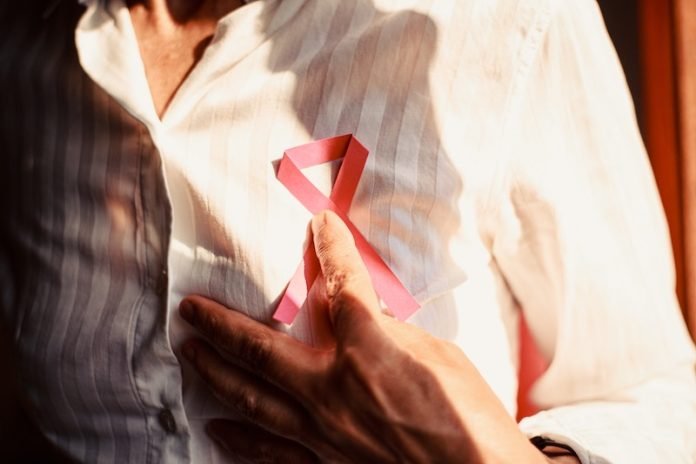
Zachary Schug, Ph.D., and his team at The Wistar Institute have made a significant breakthrough in treating Triple-Negative Breast Cancer (TNBC), an aggressive and difficult-to-treat form of breast cancer.
A new paper published in Nature Cancer outlines a double-acting approach: silencing a gene called ACSS2, which both impairs TNBC metabolism and enhances the immune system’s ability to fight the cancer.
Understanding Triple-Negative Breast Cancer
TNBC lacks estrogen, progesterone, and HER2 receptors, making it resistant to therapies that target these receptors.
Representing 10-15% of breast cancer cases in the US, TNBC is notorious for its rapid growth, treatment resistance, and poorer prognoses for patients.
Silencing the ACSS2 Gene
The ACSS2 gene regulates acetate, a nutrient that TNBC cells utilize for growth. The researchers used CRISPR-Cas9 gene editing and a compound named VY-3-135 to inhibit ACSS2.
This not only hampers the cancer cell’s ability to metabolize acetate but also triggers an immune response to attack the cancer.
A Unique Immunomodulating Effect
With ACSS2 inhibition, the tumor environment gets flooded with acetate, effectively flagging the immune system to recognize and target the cancer cells.
This method achieved effective “immunosensitization,” substantially reducing tumor growth and even eliminating it in some cases.
Implications and Future Directions
Another approach to ACSS2 inhibition is already under human clinical trials, and Schug’s research suggests this could improve outcomes for TNBC patients.
Tests combining ACSS2 inhibitors with standard chemotherapy showed enhanced effectiveness in treating TNBC.
“Incorporating this approach with existing cancer therapies can significantly improve the treatment of TNBC,” says Zachary Schug.
“Our study offers hope for a subgroup of breast cancer patients with limited options, but more research is required to validate these findings.”
Takeaways
Schug’s research on ACSS2 inhibition has illuminated a potentially groundbreaking approach to treating TNBC by attacking the cancer on two fronts: its metabolism and its ability to evade the immune system.
This opens new avenues for treatment and offers hope for improving patient outcomes.
If you care about breast cancer, please read studies about common beverage that may increase death risk in breast cancer, and as seasons change, so should diet for breast cancer survivors.
For more information about breast cancer, please see recent studies about drug that may fight hard-to-treat breast cancers, and results showing that healthy levels of vitamin D may boost breast cancer outcomes.
The research findings can be found in Nature Cancer.
Follow us on Twitter for more articles about this topic.
Copyright © 2023 Knowridge Science Report. All rights reserved.



